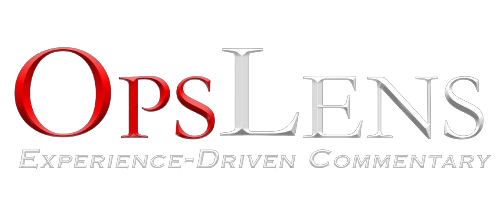In the aftermath of January 6, 2021, Americans who shopped at Bass Pro Shops, purchased certain firearms, or bought an item that included the word MAGA may have been monitored by their banks on behalf of the Biden administration as potential domestic terror threats. This is according to a January 17 statement by the chairman of the House Judiciary Committee, Rep. Jim Jordan.
Jordan stated on X, formerly Twitter, “We now know the federal government flagged terms like ‘MAGA’ and ‘TRUMP,’ to financial institutions if Americans completed transactions using those terms.”
“What was also flagged? If you bought a religious text, like a BIBLE, or shopped at Bass Pro Shop,” he added.
We now know the federal government flagged terms like “MAGA” and “TRUMP,” to financial institutions if Americans completed transactions using those terms.
What was also flagged? If you bought a religious text, like a BIBLE, or shopped at Bass Pro Shop. pic.twitter.com/jjRaVNItWz
— Rep. Jim Jordan (@Jim_Jordan) January 17, 2024
Rep. Jordan’s comments captioned a letter he had sent to Treasury official Noah Bishoff raising these concerns on behalf of the Judiciary Committee.
Jordan’s letter explained that the Judiciary Committee and the Select Subcommittee on the Weaponization of the Federal Government, also chaired by Jordan, had obtained documents showing that Biden’s Treasury Department had “urged large financial institutions to comb through the private transactions of their customers for suspicious charges.”
Responding to the revelation, House Speaker Mike Johnson warned that it was “yet another glaring example of the weaponized federal government targeting conservatives.”
According to Jordan, banks were asked to monitor law-abiding Americans by the Financial Crimes Enforcement Network (FinCEN) a bureau of the Treasury Department tasked with combatting domestic terrorism and other criminal activity. It was an arrangement Jordan described as a “mass accumulation and use of Americans private information without legal process.”
As documented in the House Judiciary letter:
FinCEN distributed materials to financial institutions that, among other things, outline the ‘typologies’ of various persons of interest and provide financial institutions with suggested search terms and Merchant Category Codes (MCCs) for identifying transactions on behalf of federal law enforcement. These materials included a document recommending the use of generic terms like ‘TRUMP’ and ‘MAGA’ to ‘search Zelle payment messages.’ … FinCEN warned financial institutions of ‘extremism’ indicators that include ‘transportation charges, such as bus tickets, rental cars, or plane tickets, for travel to areas with no apparent purpose,’ or ‘the purchase of books (including religious texts) and subscriptions to other media containing extremist views.’
Jordan stated that the transactions in view had “no apparent criminal nexus” and in fact “relate to Americans exercising their Second Amendment rights.”
Indeed, the federal government monitoring its citizens in such a way raises the question of what the government hopes to gain from this—and at what cost.
Jordan has some theories about both of those. “FinCEN seems to have adopted a characterization of these Americans as potential threat actors,” he wrote. “This kind of pervasive financial surveillance, carried out in coordination with and at the request of federal law enforcement, into Americans’ private transactions is alarming and raises serious doubts about FinCEN’s respect for fundamental civil liberties.”
Certainly, law-abiding Americans should be able to purchase firearms or political merchandise relating to a major party candidate without fear of government surveillance.
At the end of his letter, Rep. Jordan asked Noah Bishoff, who took a lead role in FinCEN’s engagement with banks during the agency’s January 6 investigations, to sit for a transcribed interview with the Judiciary Committee no later than January 31.
Would that interview provide answers to the questions many are asking? Only time will tell.
—
Image credit: Unsplash
